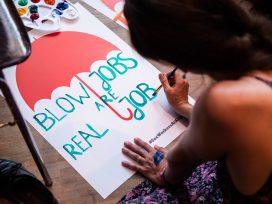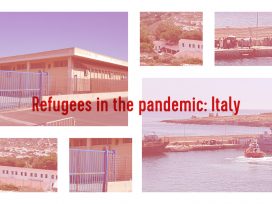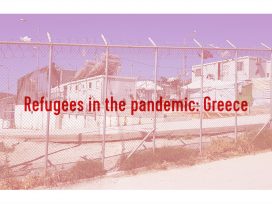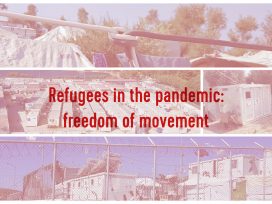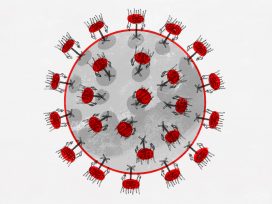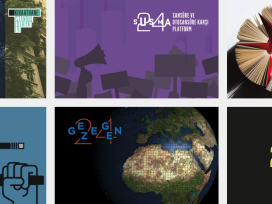Disease control
Mapping violations of free speech under the cloak of the coronavirus crisis
Journalists beaten with batons in India, Brazil’s president lashing out, a reporter arrested in Niger: these stories are tied together by a common thread – people who dared to report on the coronavirus crisis.
As the world’s attention turns to fighting the pandemic, many leaders want to fight the media instead. If anything, they’re taking the opportunity of this distraction to silence journalists. This is why Index on Censorship has launched a map in which we document these cases around the world. The map is built in partnership with Justice for Journalists Foundation who will contribute by expanding cooperation with their regional partners in central Asia.
We’ve had alerts from across the globe, from the USA to Brazil, from countries with poor records on freedom of expression to ones with higher standards. In one day alone we mapped nine new incidents. Media violations are far from rare, but nine in a day is pretty astonishing.
At present China leads in terms of media attacks, which isn’t surprising given the duel facts of it being the country of origin for the coronavirus and one of the most censored media environments in the world. China’s bid to control news of the outbreak has seen a ramping up of media censorship, as Index reported at the time. Perhaps the most troubling of all stories to emerge was last month when three Wall Street Journal reporters were kicked out of the country after the newspaper published an opinion piece in which China was referred to as the ‘sick man of Asia’. Foreign media presence has been drained further since then. The week before last China expelled more than 13 journalists from the Wall Street Journal, the Washington Post and the New York Times and banned them from working in Hong Kong and Macau too.
The Chinese government is also expecting other countries to sing to their tune. When Dutch cartoonist Maarten Wolterink posted a cartoon showing a Chinese plane with a coronavirus clinging to its tailplane on 24 January, the Chinese ambassador to the Netherlands voiced his disapproval and the demand that Dutch cartoonists be censured if they ‘insult’ China. Similarly, in Denmark on 27 January a cartoon by Niels Bo Bojesen appeared in Jyllands-Posten that portrayed coronavirus particles taking the place of the stars on China’s national flag. The Chinese embassy in Copenhagen demanded a public apology. Fortunately, Danish politicians didn’t capitulate. They were vocal in their defence of the paper and the general principle of free expression.
But it’s not just China that is censoring information on the outbreak and kicking journalists out. Just yesterday news emerged that Egyptian authorities have forced Guardian journalist and former Index employee Ruth Michaelson to leave the country after she reported on a scientific study saying Egypt likely has more coronavirus cases than the official numbers. Michaelson, who has lived in and reported from Egypt since 2014, has now come to the end of the road for reporting in the country because of her article on the country’s handling of the COVID-19 outbreak.
Perhaps most alarming are the violations happening in countries that until now we have regarded as relatively free. In South Africa, the government has stopped epidemiologists, virologists, infectious disease specialists and other experts from commenting on COVID-19. All requests for comment must be directed to the National Institute for Communicable Diseases. At a time when knowledge is crucial and the internet is being flooded with disinformation, blocking access to experts of the field is dangerous, to say the least.
In Slovenia, the investigative journalist Blaž Zgaga has been subject to a smear campaign and has received death threats since submitting a request for information to the government about its management of the coronavirus crisis. Slovenia ranked 34 out of 180 countries in the RSF world press freedom index 2019.
Mapping these abuses is of critical importance, not the least to let people and politicians know that we are watching and documenting. We need to increase awareness around the world about the challenges media professionals face during the coronavirus crisis, and to highlight the importance of media freedom. We need to rally behind journalists and, moving forward, we need to improve media freedom globally. After all, the means used to repress journalists right now didn’t emerge overnight – they’ve been finessed, tailored and expanded over the years.
These are unprecedented times and in moments of crisis, our freedoms have a tendency to slide away from us. But these are also times when trusty-worthy journalism is more important than ever. We intend to hold those in power to account and to aid those at the forefront of reporting on the coronavirus crisis.
For more information on the map and/or to report an attack, please click here.
Published 30 March 2020
Original in English
First published by Index on Censorship
Contributed by Index on Censorship © Jemimah Steinfeld / Index on Censorship / Eurozine
PDF/PRINTPublished in
In focal points
Newsletter
Subscribe to know what’s worth thinking about.
Related Articles

Ukrainian journalists, acting as responsible citizens, prioritize caution over breaking news in support of the war effort. But when does vigilance become self-censorship? And how far is this tendency being manipulated for military gain? Independent media outlets, making their voices heard, defy top-down decision-making.

In France, the censorship of pro-Palestinian positions is particularly severe, with antisemitism accusations increasingly being used by the far right. But behind the current wave of repression lies a set of attitudes that are neither new, nor exclusively rightwing.
